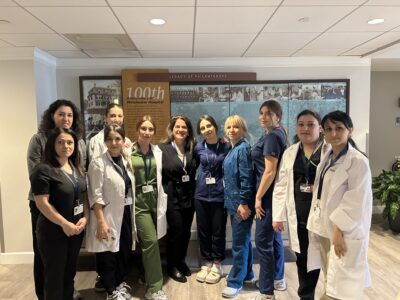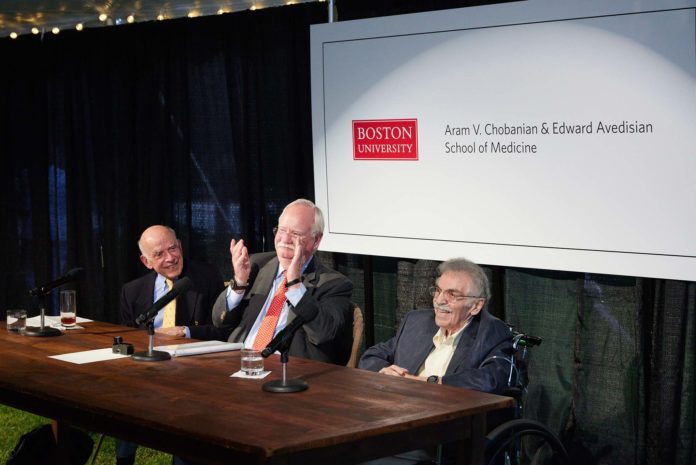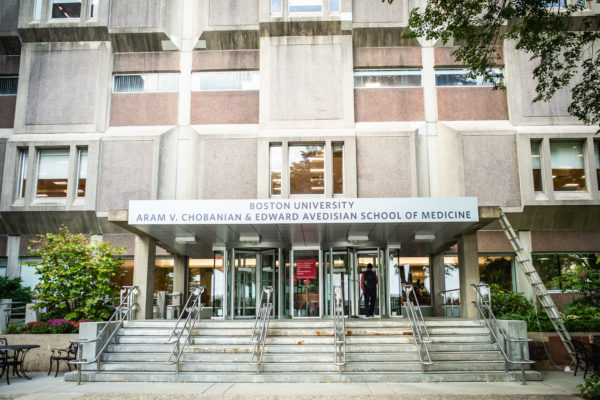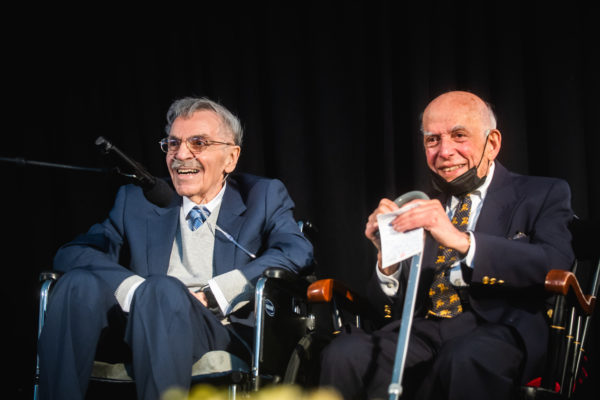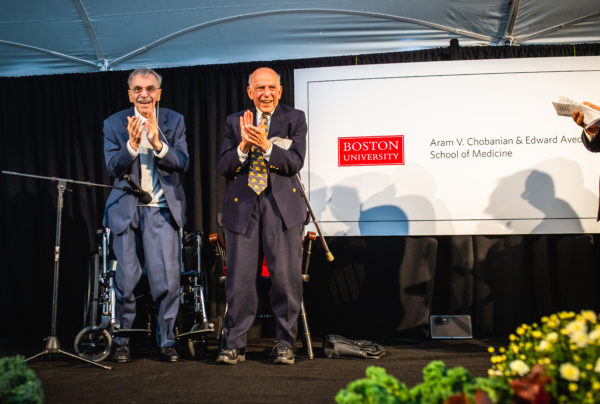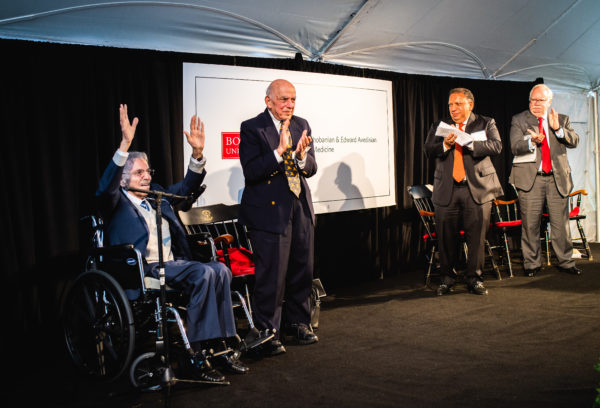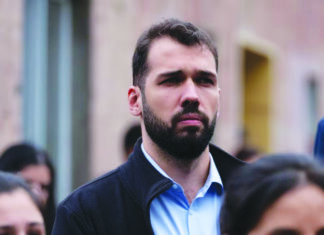BOSTON — Two Armenian families finding freedom in America. Two boys growing up poor a few doors apart in hardscrabble Pawtucket, R.I. Two successful men — one a renowned cardiologist and former president of Boston University, the other a celebrated clarinetist for the Boston Pops — changing the course of Boston University history.
Lifelong friends Aram V. Chobanian and Edward Avedisian will now be connected forever as the namesakes of BU’s medical school. Thanks to a $100 million gift from Avedisian (CFA’59, CFA’61) that will support scholarships, endowed faculty chairs, and cutting-edge research and teaching, the school is being renamed the Boston University Aram V. Chobanian & Edward Avedisian School of Medicine.
University President Robert A. Brown called it “one of the most remarkable grants in the history of higher education” at a private signing ceremony at his residence in late August to accept the gift and formalize the school’s name change.
Avedisian is retired after nearly four decades of playing the clarinet with the Boston Pops and Boston Ballet Orchestra. But it was the stunning success of his personal investments that afforded him the opportunity to give back to others. He has never forgotten his parents’ hard work and sacrifice, or the emphasis they placed on education, and he became a generous philanthropist to both the US and Armenia in his later years. “I felt very fortunate, for BU and others that helped along the way,” he says.
Even still, in all of his donations to colleges and hospitals and schools, Avedisian never named anything after himself, and he didn’t want his gift to MED to be any different. But when he proposed that his donation instead honor his childhood friend, Chobanian (Hon.’06), president emeritus of BU and dean emeritus of the School of Medicine as well as a nationally renowned cardiologist, the plan hit a bump. Chobanian, showing the same humility as Avedisian, firmly declined the honor when first asked—and a few more times after. Neither man, it seemed, wanted his own name up in lights.
“Both men are very, very, humble,” Brown says. “Really old school.”
